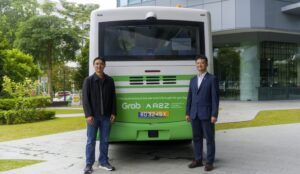
ILLUSTRATION: Shutterstock
From chatbots to cyber threats, 2024 promises to be the year generative AI takes centre stage. It will permeate business operations and reinvent workflows but there will also be significant challenges facing organisations looking to leverage this transformative technology.
According to industry experts, generative AI chatbots trained on proprietary data will emerge across sectors like finance, retail, and healthcare which own large swathes of data.
Organisations will have to focus on unifying siloed data sources to fuel these AI systems and drive accurate insights.
Deploying AI also brings headaches. Firms will grapple with compute costs that can tally into huge bills worth millions of dollars for running large language models (LLMs).
Mitigating expenses by moving inferencing to edge devices like servers and PCs will be a key consideration. Many will also build custom models, blending current GenAI software with industry-specific knowledge to optimise inferencing.
On the technology front, a new class of AI PCs armed with the latest advanced microprocessors from Intel, AMD and Qualcomm will have the computational oomph to take on GenAI processing.
They will enter the market as large language models (LLM) inferencing is distributed to the edge, to take off the computational load on data centres. Here are a few AI trends worth watching this year:
AI moves beyond buzzwords: After spending 2023 learning and experimenting about AI, business leaders are readying to develop and deploy embedded AI applications in their workflows.
However, organisations will have to judiciously prioritise projects amid high compute costs for operating LLMs, which can incur multi-million dollar AI bills, said Dr David Hardoon, chief executive of Aboitiz Data Innovation. Monitoring productivity metrics and return on investments will be imperative as leaders validate the business case.
Inferencing moves to the edge: IT teams will have to consider the best ways to design the inference infrastructure including where to site and secure the data to deliver faster and better responses, said Dell’s chief technology officer John Roese.
Should inferencing be on edge devices or data centres? Organisations face tradeoffs. To tame expenses, inference can be moved to the edge which will speed up customer experience but raises security concerns. Open-source LLMs may offer cost-effective alternatives in specific scenarios.
Additionally, organisations will have to factor in the time needed to fine-tune their chatbots to ensure that the accurate business insights are inferenced.
The training of LLMs is not an overnight process, requiring iterative processes that eats up development and deployment timelines.
Breaking down data silos: Data is the lifeblood of accurate inferences. Unifying fragmented data silos will be a top priority for organisations as they re-think their data architectures to fuel the new era of AI. External data that resides with third-party stakeholders must also be included for a holistic dataset.
Cybersecurity threat: Even as organisations undertake the effort to unify data, they should also renew their efforts to protect their commercial secrets. You Qinghong, NetApp’s solutions engineering lead for Greater China, Asean and South Korea, raised a stark warning: Data may already be hacked. So, better to be prepared.
By 2031, a ransomware attack every two seconds, costing victims US$265 billion annually, is predicted, he said. Businesses must prioritise secure-by-design systems and immutable data backups.
Customise the conversation: Financial institutions, governments, and healthcare providers have a treasure trove of industry-specific data, paving the way for customised LLMs which are a blend of the currently available chatbots with specific knowledge bases. Together, they can throw up the most accurate and latest information.
Besides, as AI takes root in Asean, expect chatbots fluent in Thai, Korean, Mandarin and other languages in the region, said Han Chon, Nutanix’s managing director of Asean, Taiwan, Hong Kong and Korea.
Rise of AI-specific cloud providers. In November last year, GPU king Nvidia inked a deal with cryptocurrency miner Bitdeer Technologies Group to provide (AI) computing power in Asia, starting with an AI cloud data centre in Singapore.
As AI adoption snowballs, more of these ventures and new cloud services will crop up, catering specifically for AI workloads.
The AI PC: PC giants are scrambling to provide the muscle for this AI surge. Lenovo, Dell, Asus are among the early PC makers to refresh their product lines with new machines equipped with advanced AI chips capable of running LLMs and applications natively.
At the ongoing CES Show 2024 in Las Vegas, Dell debuted the XPS 13 Plus with AI acceleration built into the device using Intel Core Ultra processors. HP, Lenovo, Razer and other PC makers also launched their AI PCs at CES.
However, computational power and speed come at premium. AI PCs are expected to lift average selling price of PCs. Initially, the early AI PCs will serve the enterprise market, before trickling down to the broader segments.
Research company Canalys predict a rapid uptake of AI PCs beginning in 2025, expecting them to comprise approximately 60 per cent of all PC shipments by 2027.
More NPUs emerge: Specialised neural processing units (NPUs) are on the horizon, promising further AI acceleration. Dell’s Roese expects these purpose-built processors, championed by Intel, AMD, and Qualcomm, to find their way into AI PCs, bolstering their LLM capabilities.
However, Apple has been using NPUs for years since the A11 Bionic chip in 2017 for the iPhone 8 family. Its M-series chips for its computers illustrate the potential of NPU powering algorithms for machine learning.
AI’s Achilles Heel: The biggest headwind facing organisations and tech companies is that the demand for AI engineers, researchers, and specialists far outstrips supply.
Job postings mentioning AI on LinkedIn have more than doubled in two years. Such talent demand salaries upwards of US$100,000 a year each. Bridging this skill gap could be the decisive factor in determining who thrives in the AI era.
AI ethics and governance: As generative AI’s power grows, so does the chorus of legal, ethical and governance concerns. Policymakers, businesses, and communities have to wrestle with questions of responsible AI and governance.
ASEAN’s upcoming Responsible AI framework for its 10-member countries is an approach simplifying compliance for organisations operating across this region.
There are many more issues surrounding GenAI such as plagiarism, copyright and sustainability and they warrant important discussions in themselves.
What’s clear is that AI technology advancements will continue to be rapid. This year will see the beginnings of multi-modal chatbots able to converse in text, video, images and sound. 2024 is the year the AI technology further reshapes our world, one algorithm at a time.
CORRECTIONS at 18/01/2024 10:35pm: In an earlier version of the story, the names of Dell’s John Roese and NetApp’s You Qinghong were misspelt. The story has been updated with the correct names. We are sorry for the errors.






